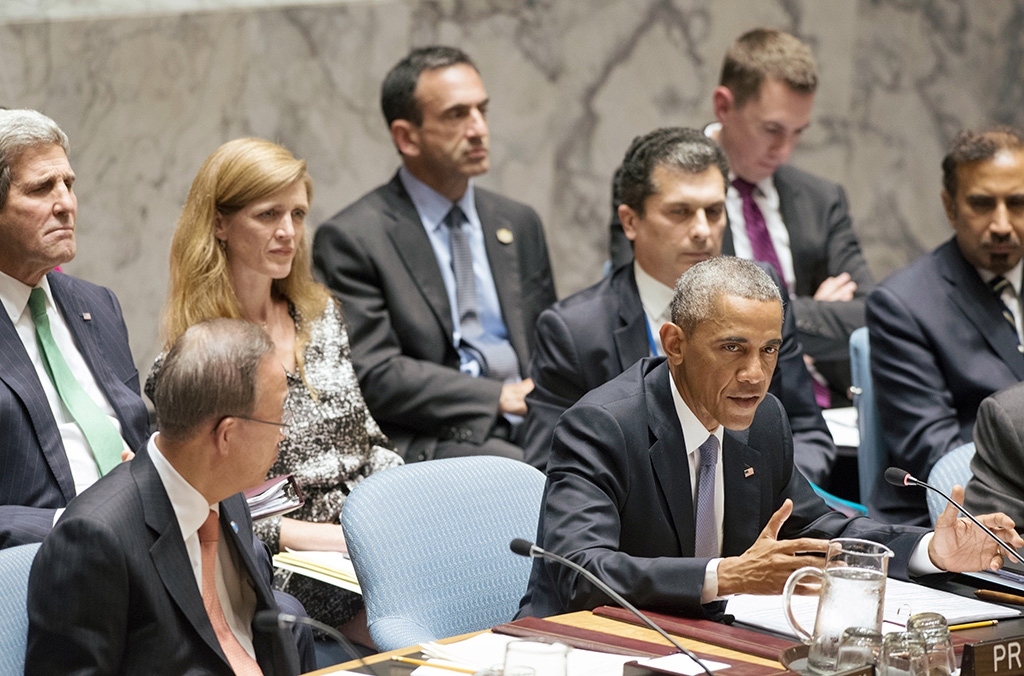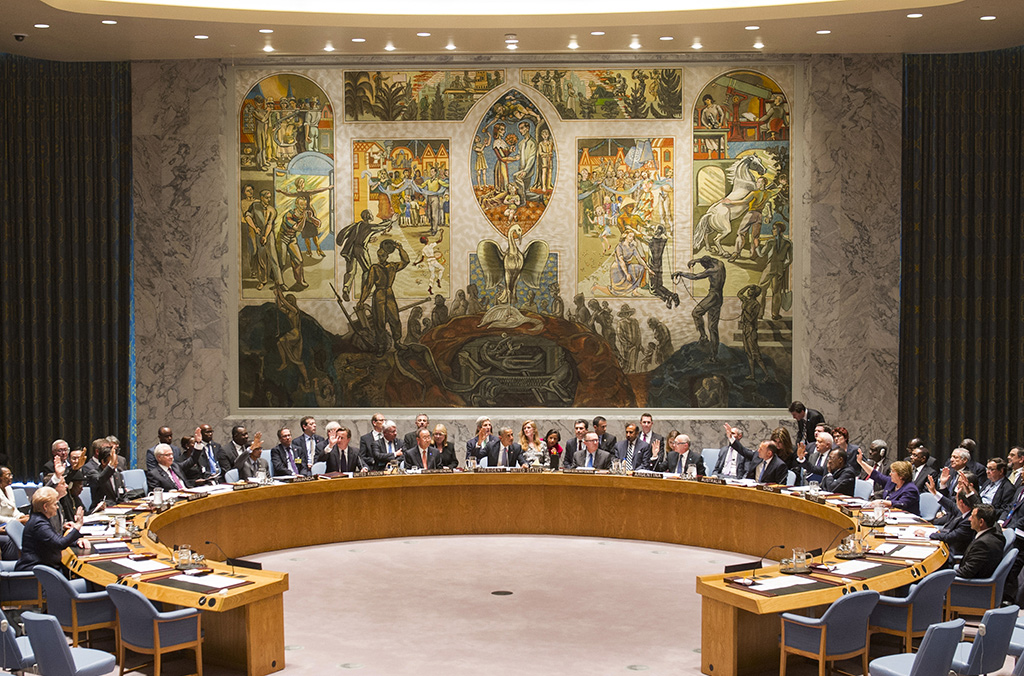UNITED NATIONS, New York – The United Nations Security Council (UNSC) has unanimously adopted a Resolution recognizing the efforts of INTERPOL against the threat posed by foreign terrorist fighters, including through global law enforcement information sharing.
Resolution 2178 (2014), which was submitted during a special session of the UNSC chaired by US President Barack Obama, also highlights the use of INTERPOL’s I-24/7 secure police communications network, global databases and system of advisory notices, in addition to its counter-terrorism efforts and procedures to track stolen, forged identity papers and travel documents.
To this end, global complementary tools provided by INTERPOL to prevent the international travel of foreign fighters include its Stolen and Lost Travel Documents (SLTD) database, as well as I-Checkit, a screening measure enabling companies in the transport, banking and tourism industries to submit passport information for screening against the SLTD database. It currently contains more than 43 million records from 167 countries.
The Resolution further encourages INTERPOL to intensify its efforts against the foreign terrorist fighter threat and to recommend or put in place additional resources to support and encourage national, regional and international measures such as expanding the use of INTERPOL Special Notices to monitor and prevent the transit of foreign terrorist fighters.
Welcoming the adoption of the UN Resolution, INTERPOL Secretary General Ronald K. Noble said the world police body is working to ensure authorities worldwide use INTERPOL’s global tools and resources to their fullest potential to identify terror threats.
“The UN Resolution recognizes that the transnational threat of foreign fighters is a global collective responsibility, and that sharing information through INTERPOL’s global network is vital to more effectively identify suspected foreign fighters and prevent them from travelling,” said Secretary General Noble.
“INTERPOL is working to facilitate exchanges between our 190 member countries to compile and compare information and identifiers of suspected foreign fighters, but this must be complemented by efforts on the ground. The time to act is now, and UN Resolution 2178 will be crucial to that effort,” added the Head of INTERPOL.
On behalf of the international law enforcement community Secretary General Noble also strongly condemned the ‘despicable’ murder in Algeria of French tourist Herve Gourdel by a jihadist group reportedly linked to Islamic State (IS) militants.
INTERPOL’s National Central Bureau in Washington on Wednesday announced the formation of a dedicated INTERPOL Foreign Terrorist Fighter programme in partnership with the US National Security Council, Department of Justice, and Department of Homeland Security.
In this respect, US Attorney General Eric Holder said: “In a world that is increasingly interdependent and interconnected, INTERPOL helps to defend against a range of evolving challenges by disseminating information, combating crime, and identifying potential threats.”
The issue of foreign terrorist fighters will be high on the agenda of the 83rd INTERPOL General Assembly in Monaco (3-7 November), which will include a ministerial meeting including Home Affairs, Justice and Security Ministers from more than 100 countries.





